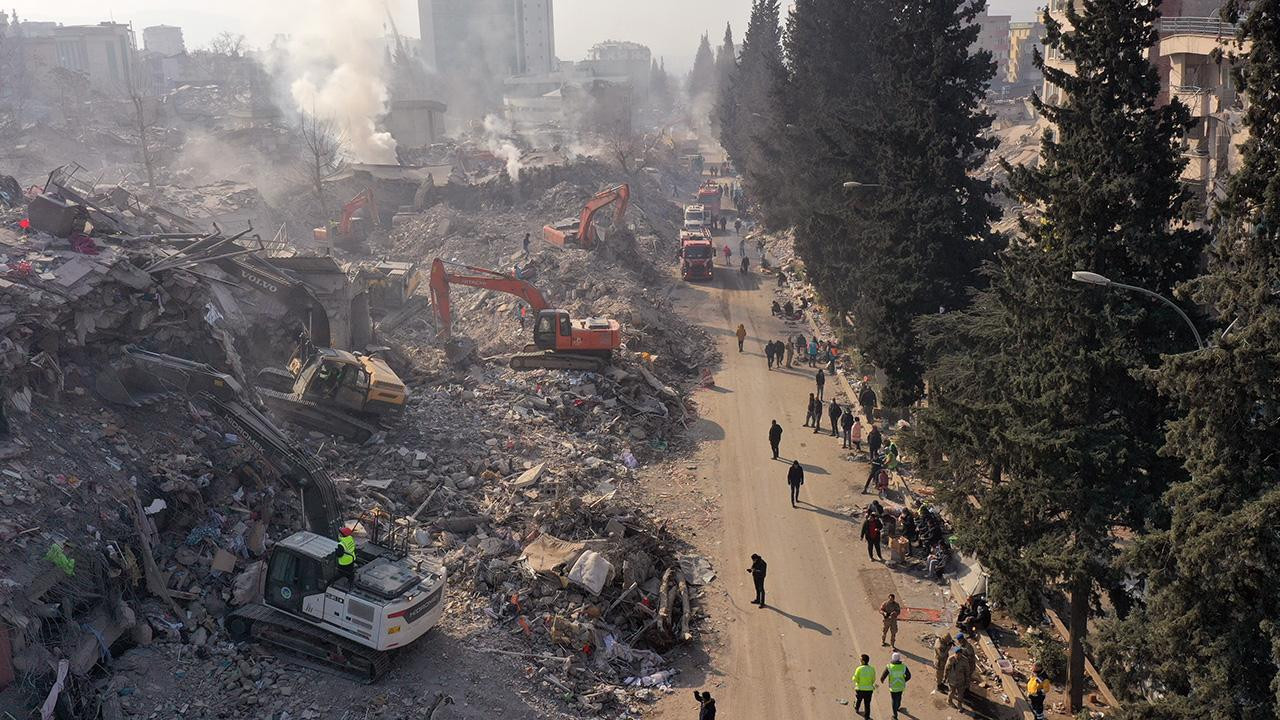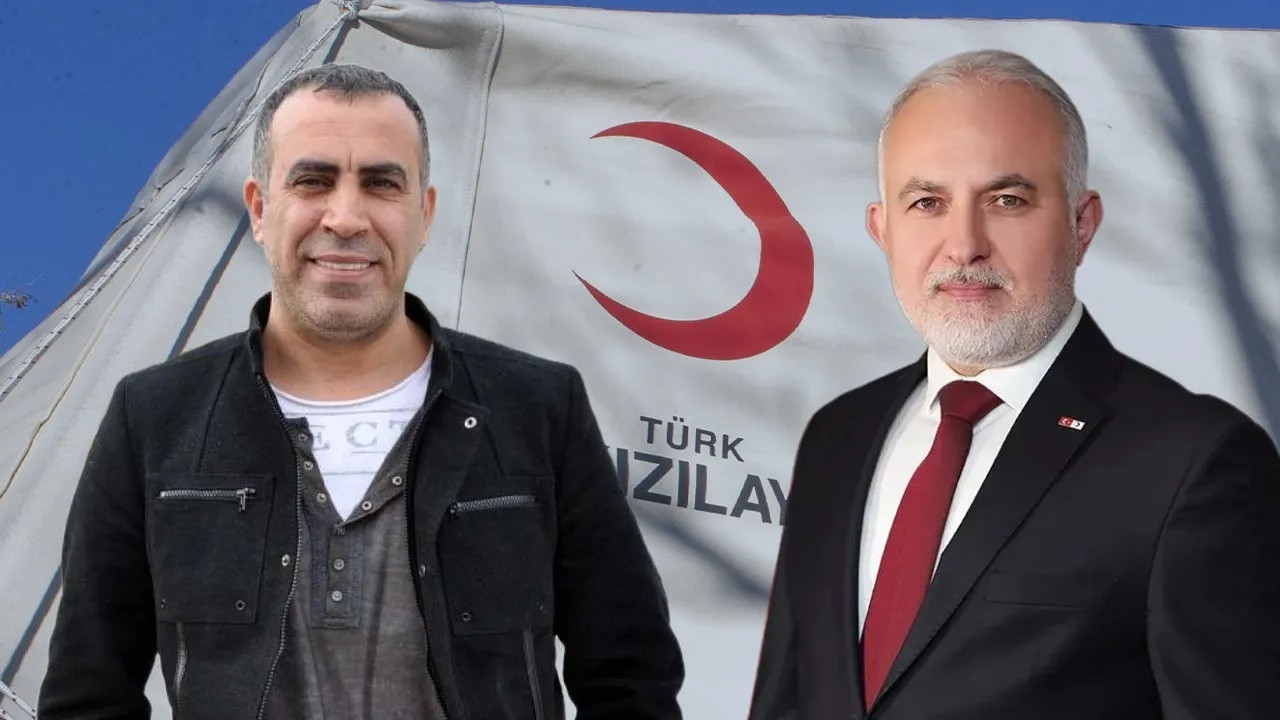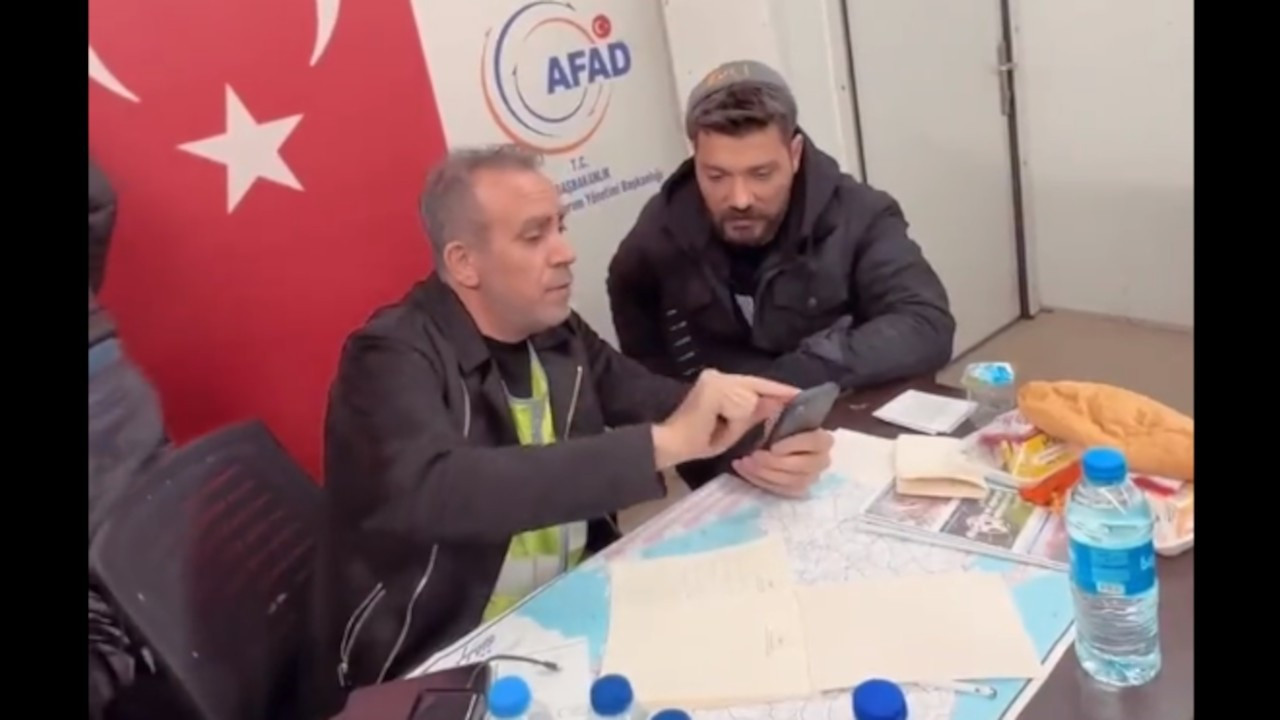‘We were not late, but disaster was too big,’ AFAD chair pleads about Feb. 6 quakes
Chair of the Turkish Disaster Management Agency (AFAD) Okay Memiş objected to claims about AFAD’s late intervention during the Feb. 6 quakes. “We were not late, but we could not be enough as the disaster was too big,” the chair pleaded.
Duvar English
Okay Memiş, chair of the Turkish Disaster and Emergency Management Authority (AFAD), held that the destruction of the Feb. 6 earthquakes was too big for the agency. “We were not late, but we could not be enough,” the chair pleaded in a Disaster Communication symposium organized by the Communications Directorate on the first anniversary of the earthquakes.
“The first earthquake alone released two thousand times more energy than the atomic bomb dropped on Hiroshima,” Memiş stated. He repeated the Justice and Development Party (AKP) government’s description of the earthquakes as the “disaster of the century.”
The state apparatus has expressed on many occasions that the quakes were the “disaster of the century,” claiming that “it was not possible to be prepared for such an earthquake.”
Memiş went on to defend AFAD against criticisms of their late arrival to many disaster zones following the earthquake. Some afflicted provinces such as Hatay did not see any governmental assistance for the first few days after the earthquakes, which significantly contributed to the death toll. The AFAD chair suggested that the government diverted 35,000 local and international search and rescue teams to the quake zone in the first hours after the initial quake.
He said, “We were not late but we could not be enough. Our numbers were not enough, the destruction was too heavy.” The chair also introduced a new project wherein a total of 100,000 public workers, gendarmerie, police forces, and military personnel would receive search-and-rescue training in a year.
Memiş also justified the housing crisis that further burdened the earthquake survivors. “In the first weeks, the demand for tents was overwhelming. But eventually, we met all the demands,” the chair said.
State-run institutions like AFAD and the Turkish Red Crescent failed the quake-stricken people in rescue and relief efforts. Civil society organizations such as the AHBAP Foundation stepped in, organizing nationwide aid collection campaigns and responding to the immediate needs of the rescue teams on site.
Millions of liras have been donated to AHBAP instead of the state-run AFAD amid corruption concerns, with people saying that they do not know how their money will be spent in the latter.
The Turkish Red Crescent came under fire as it admitted to selling tents and food to the AHBAP Foundation. Red Crescent head Kerem Kınık resigned months after the incident when President Recep Tayyip Erdoğan stated he was “saddened” to hear the Turkish Red Crescent sold tents.
From the first day onwards, the government tried to monopolize aid distribution in the hands of AFAD. National Movement Party (MHP) leader Devlet Bahçeli has even publicly targeted AHBAP association, calling the group “scammers” and calling on people to make donations to AFAD instead.


 Turkish authorities update death toll of Feb. 6 earthquakes to 53,500Domestic
Turkish authorities update death toll of Feb. 6 earthquakes to 53,500Domestic Charity Ahbap’s founder: Turkish Red Crescent also sold food to usDomestic
Charity Ahbap’s founder: Turkish Red Crescent also sold food to usDomestic Pro-gov't figures target singer Haluk Levent's charity Ahbap following huge donationsDomestic
Pro-gov't figures target singer Haluk Levent's charity Ahbap following huge donationsDomestic